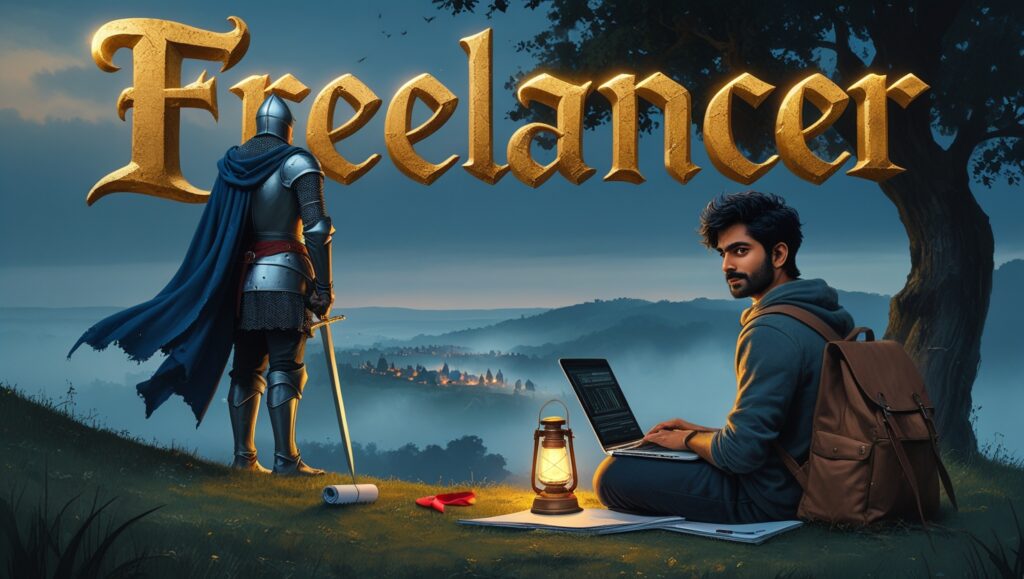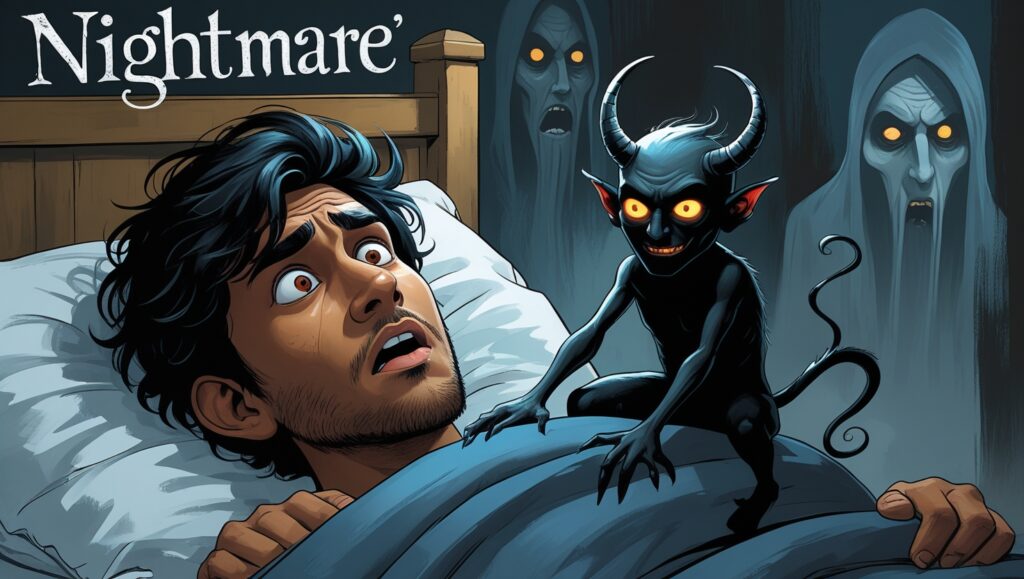Have you ever wondered where common words like deadline, freelancer, or nightmare come from? Every day, we use words without thinking about their surprising, sometimes chilling pasts. But hidden behind these ordinary words are fascinating weird word origins, stories filled with war, rebellion, plagues, and even ghostly myths.
In this article, we’ll explore the strange, often forgotten tales behind five familiar words. Whether you’re a language lover, a history buff, or just curious, you’ll never look at these words the same way again!
Table of Contents
The Fascinating World of Weird Word Origins
Language is a living record of human experience. Words evolve, travel through time, and pick up bits of history, culture, and folklore. Exploring weird word origins helps us see that words aren’t just tools for communication, they’re time machines that take us back to battles, protests, ancient beliefs, and epidemics.
Let’s dive into five intriguing examples.

1️⃣ The Deadly History Behind Deadline
When we hear the word deadline today, we think of work projects, school assignments, or goals that need to be completed by a certain time. But the origin of deadline is much more chilling.
👉 During the American Civil War, prisoner-of-war camps were surrounded by a boundary, a literal line drawn in the dirt or marked with posts. Prisoners were warned never to cross this line. Why? Because if they did, guards had orders to shoot them on sight. This boundary was called the dead line.
Over time, the term evolved. It was first used in printing, referring to the latest time materials could be submitted without missing the publication. Eventually, it came to mean any time limit, especially in work settings.
💡 Next time you’re stressed about a deadline, just remember: at least no one is pointing a rifle at you!

2️⃣ Freelancer: The Knight Without a Master
If you’re self-employed or work on gigs, you probably call yourself a freelancer. But did you know this word started in medieval warfare?
🏰 In the Middle Ages, a free lance referred to a knight or mercenary who wasn’t sworn to any king or lord. His lance (a long spear used in battle) was “free,” meaning he would fight for whoever paid him the most. These warriors had no loyalty beyond their paycheck.
Today’s freelancers aren’t wielding swords, but the spirit is similar. Freelancers offer their skills, whether writing, designing, coding, or consulting, to those willing to pay.
👉 Cool fact: The next time you submit a proposal for a freelance job, you’re carrying on a knightly tradition!

3️⃣ The Spooky Myth Behind Nightmare
Bad dreams can feel terrifying, but the word nightmare has an origin that’s even creepier than the dreams themselves.
Long ago, people believed that sleep disturbances weren’t just the result of a restless mind. They thought an evil spirit, called a mare, would sit on a sleeper’s chest during the night, making it hard to breathe and causing terrifying dreams. This legend gave us the term nightmare.
🌙 This old belief explains why nightmares feel so suffocating and frightening. Even today, people sometimes describe bad dreams as if they were haunted by something unseen.
💡 Fun tip: The next time you wake from a nightmare, you can blame it on an ancient ghostly mare!

4️⃣ Boycott: When a Man’s Name Became a Movement
We use the word boycott today to describe avoiding a product, company, or person as a form of protest. But did you know boycott comes from a real person’s name?
In 1880s Ireland, Charles Boycott was a land agent working for English landlords. When he tried to raise rents on struggling Irish farmers, the community decided to take action. But instead of violence, they chose a peaceful yet powerful protest: no one would work for him, sell to him, or even speak to him. Charles Boycott became isolated, a man shunned by an entire community.
This tactic worked so well that boycott entered the English language as a word for organized refusal or social isolation.
👉 Modern boycotts, from refusing certain brands to supporting social justice causes, trace back to this single act of defiance.

5️⃣ Quarantine: A Word Born From the Plague
The word quarantine became part of our daily vocabulary during the COVID-19 pandemic. But its origin goes back to another deadly outbreak, the Black Death in 14th-century Europe.
Ships arriving in Venice had to wait offshore for 40 days before crew and passengers could disembark, to prevent the spread of disease. In Italian, quaranta means forty, and quarantina giorni meant “forty days.” That’s how the word quarantine came into use.
🚢 Imagine being stuck on a stinky medieval ship for over a month. Next time you grumble about quarantine during flu season, just be glad you’re at home, not at sea!
Why Knowing Weird Word Origins Matters
Learning about weird word origins does more than satisfy curiosity. It helps you:
✅ Remember words better: Connecting a word to a story or image makes it easier to recall.
✅ Appreciate language: You start seeing English (or any language) as a rich tapestry woven from history, culture, and human experience.
✅ Sound smarter in conversations: Who doesn’t love sharing a fun fact at a party?
Words like deadline, freelancer, nightmare, boycott, and quarantine show how language evolves to reflect the struggles, fears, and creativity of people over centuries.
1️⃣ What are weird word origins?
Weird word origins refer to surprising, strange, or unexpected histories behind common words, stories that reveal how words entered the language or changed their meaning over time.
2️⃣ Why is it useful to know word origins?
Understanding word origins helps improve vocabulary, boosts memory, and deepens appreciation for language and history.
3️⃣ Are there more examples of weird word origins?
Absolutely! Words like salary (from the Latin for salt), hazard (originally meaning dice game), and clue (which meant a ball of yarn) all have fascinating origins
Final Thoughts
The next time you hear or use a familiar word, pause for a moment. Ask yourself, Where did this word come from? You might discover a tale of war, a rebellious protest, or a legend about ghosts. These weird word origins connect us to people and events from long ago, and make our everyday speech a little more magical.
💬 Tell us in the comments: Which word surprised you the most? Are there other strange word origins you want to learn about?
👉 If you enjoyed this article, don’t forget to share it, bookmark it, and explore our other stories on the hidden histories of everyday language!

